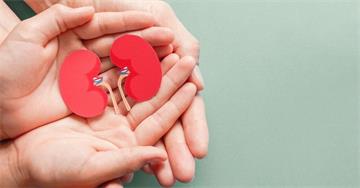John Radcliffe among top UK hospitals for organ donation

Nearly 100 lives were saved or improved thanks to patients who donated their organs at the John Radcliffe Hospital, part of Oxford University Hospitals NHS Foundation Trust (OUH), last year.
New figures published on Wednesday 12 July reveal there were 36 patients – including adults and children – who donated their organs after death at the Oxford hospital in the 2022/23 financial year, helping 97 people of all ages desperately in need of a transplant.
NHS Blood and Transplant (NHSBT) released the figures to mark the publication of the annual Organ Donation and Transplantation Activity Report, which shows that the John Radcliffe facilitated the joint fifth most organ donations in the UK last year.
This year's figures show an increase from 2021/22, when 26 deceased donors helped 63 people receive transplantation.
Anny Sykes, Interim Chief Medical Officer at OUH, said: "Transplants – and the donors who make them possible – help transform lives and families, and I am hugely proud and appreciative of all the hard work our Organ Donation team do to make the amazing gift of organ donation possible.
"They show such dedication and compassion in immensely difficult and sensitive circumstances – it often goes unseen but is hugely valued."
NHSBT's annual report shows deceased organ donation in the UK increased by two per cent last year thanks to the continuing recovery of organ donation and transplant activity following the COVID-19 pandemic. A total of 1,429 adults and children donated their organs after death last year.
Despite this, the number of people being listed for a transplant has increased. This is due to most being suspended during the height of the pandemic and, subsequently, others needing a transplant being added to the list. There are more than 7,000 people on the active waiting list and a further 3,822 temporarily suspended.
Organ donation is when someone gives an organ to save or transform the life of someone else. Although some organs, like a kidney or part of a liver, can be donated when the donor is alive (living donation), most organ and tissue donation happens after someone has died.
Someone who donates their organs after death can potentially save the lives of multiple people. They may be able to donate their heart, lungs, liver, pancreas, kidneys or bowel, in addition to other tissues such as corneas.
More than 50,000 people are alive in the UK today thanks to the life-saving gift of organ donation.
Habiba Ahmed, a Specialist Nurse in Organ Donation at OUH, said: "Organ donation is one of the most precious gifts a person can give and, even though the law around organ donation has changed to an opt-out system, it is important that people know that their families and loved ones will still be consulted should the worst happen.
"We need more people in the Oxfordshire area to talk about organ donation to increase the number of lifesaving transplants. Please register your organ donation decision on the NHS Organ Donor Register. If your family know what you want to happen when you die, they are much more likely to honour that decision and make organ donation a possibility."




























































